Orchestra Santa Monica Performs Concert “Classical Jukebox” at BroadStage
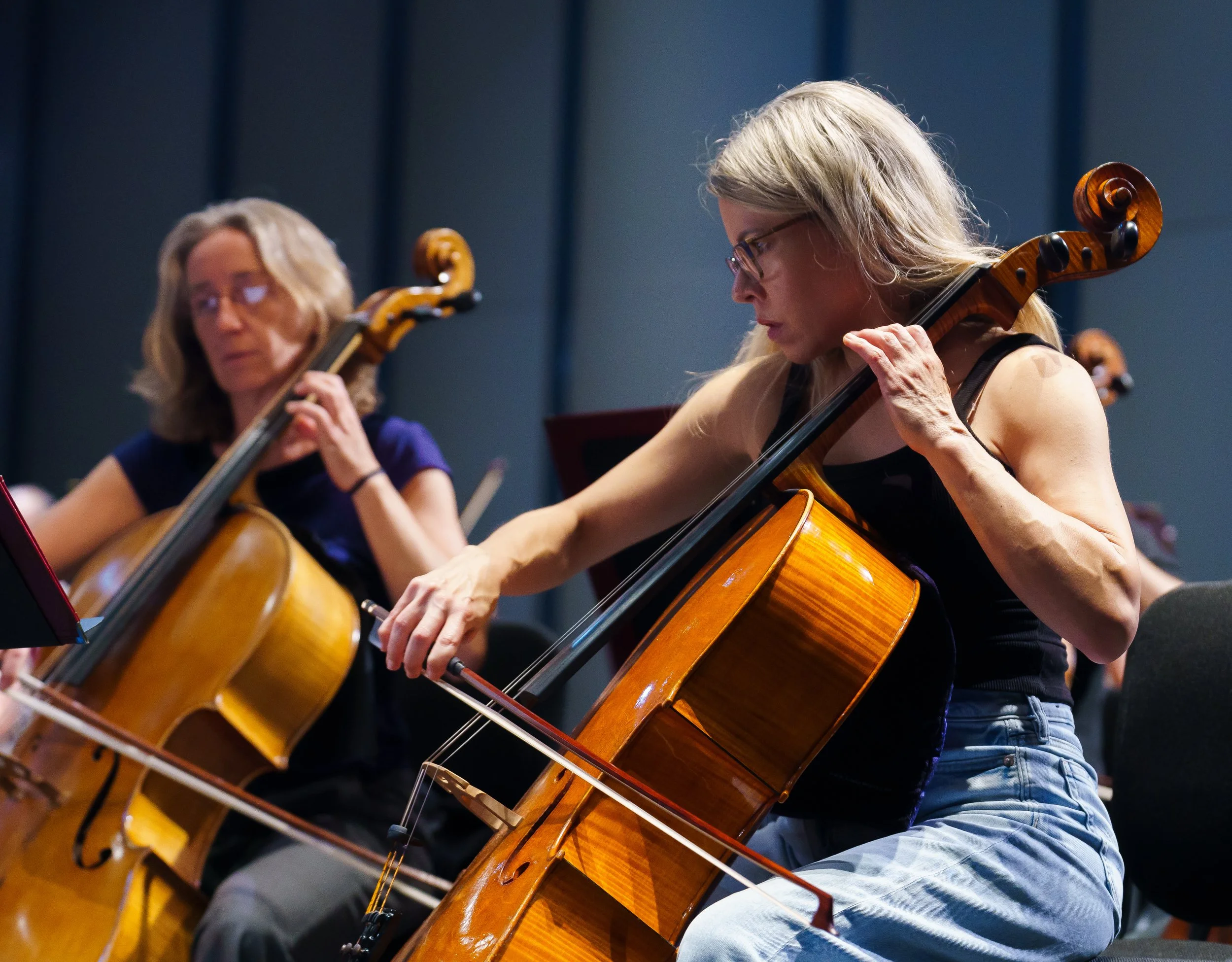
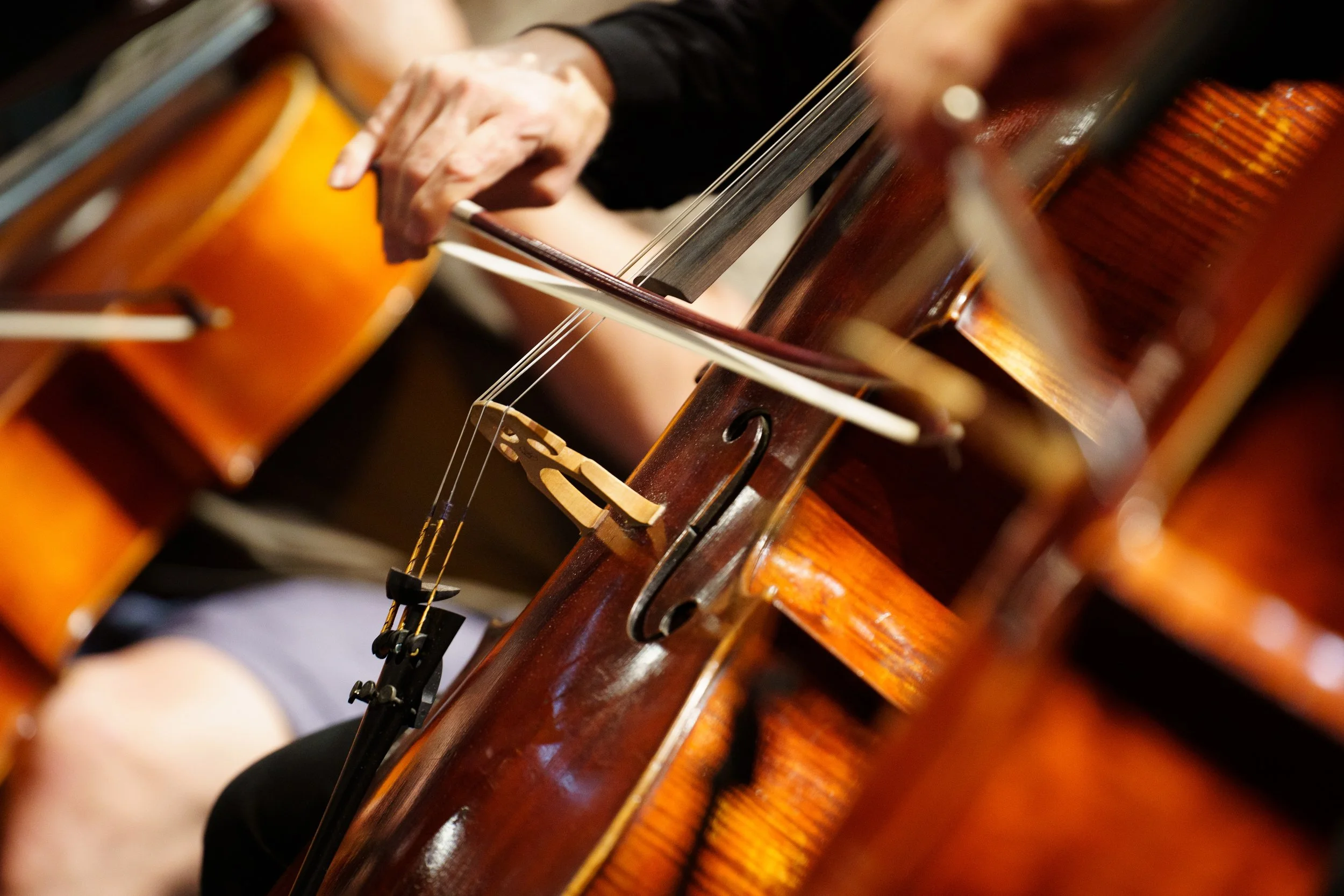
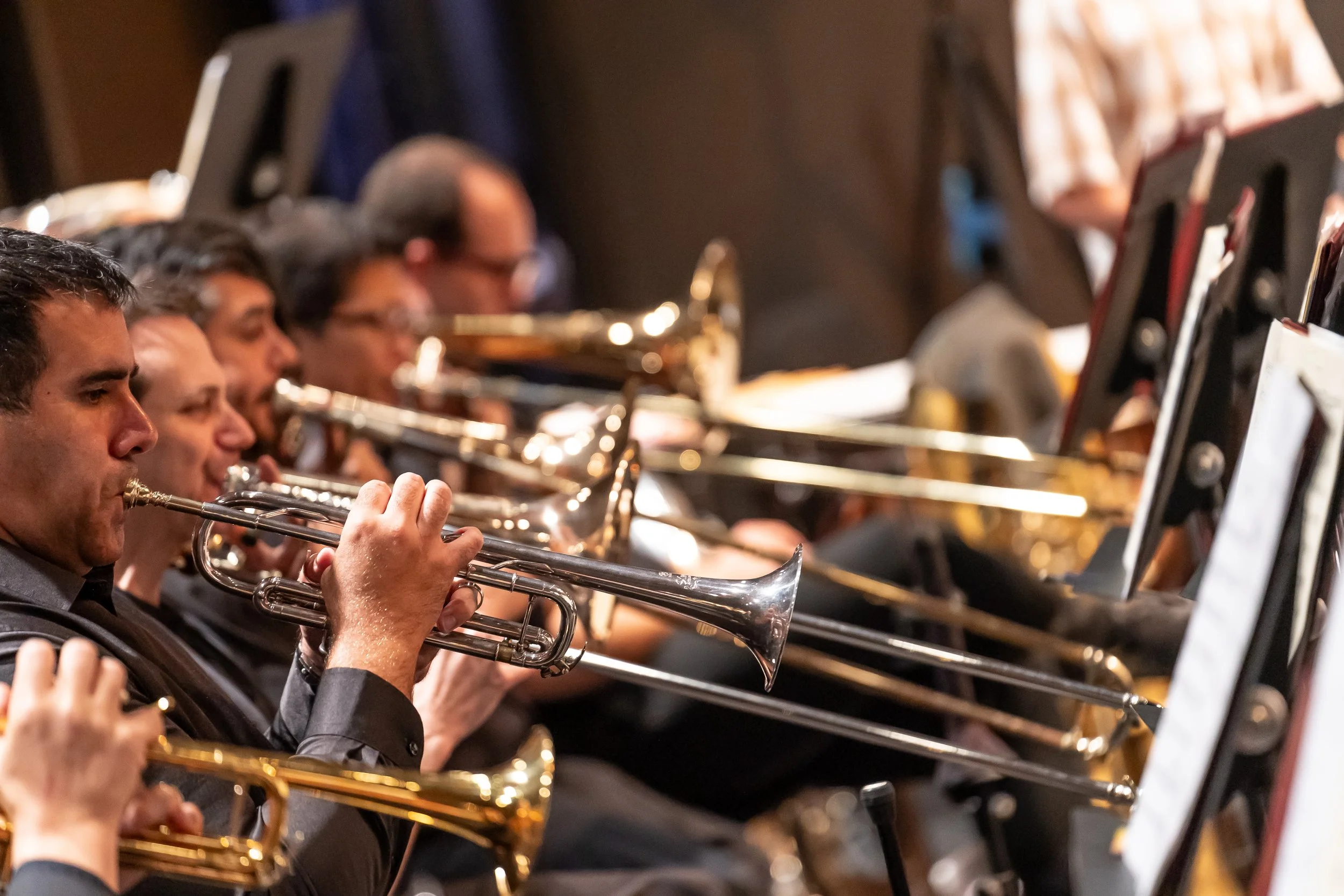
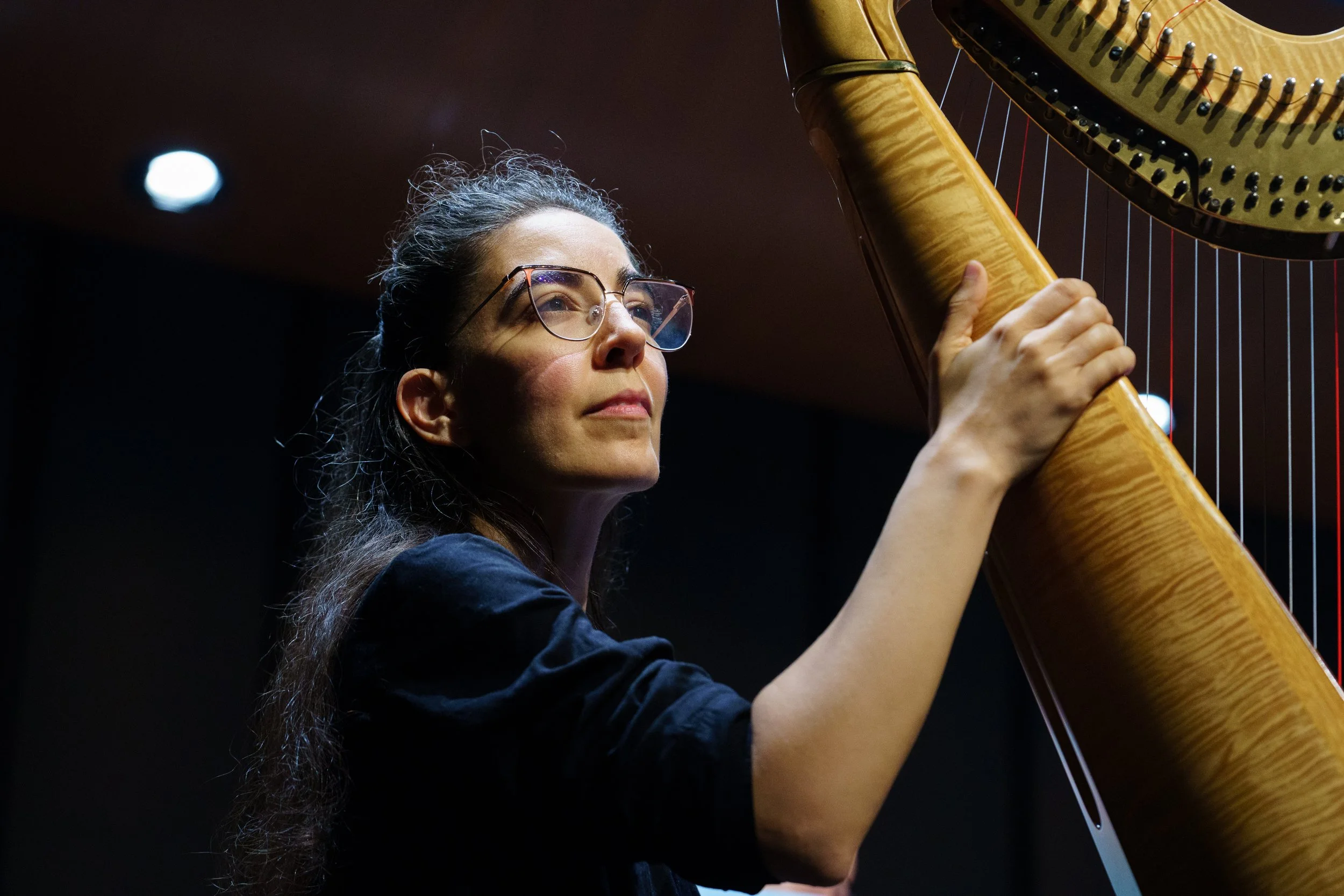
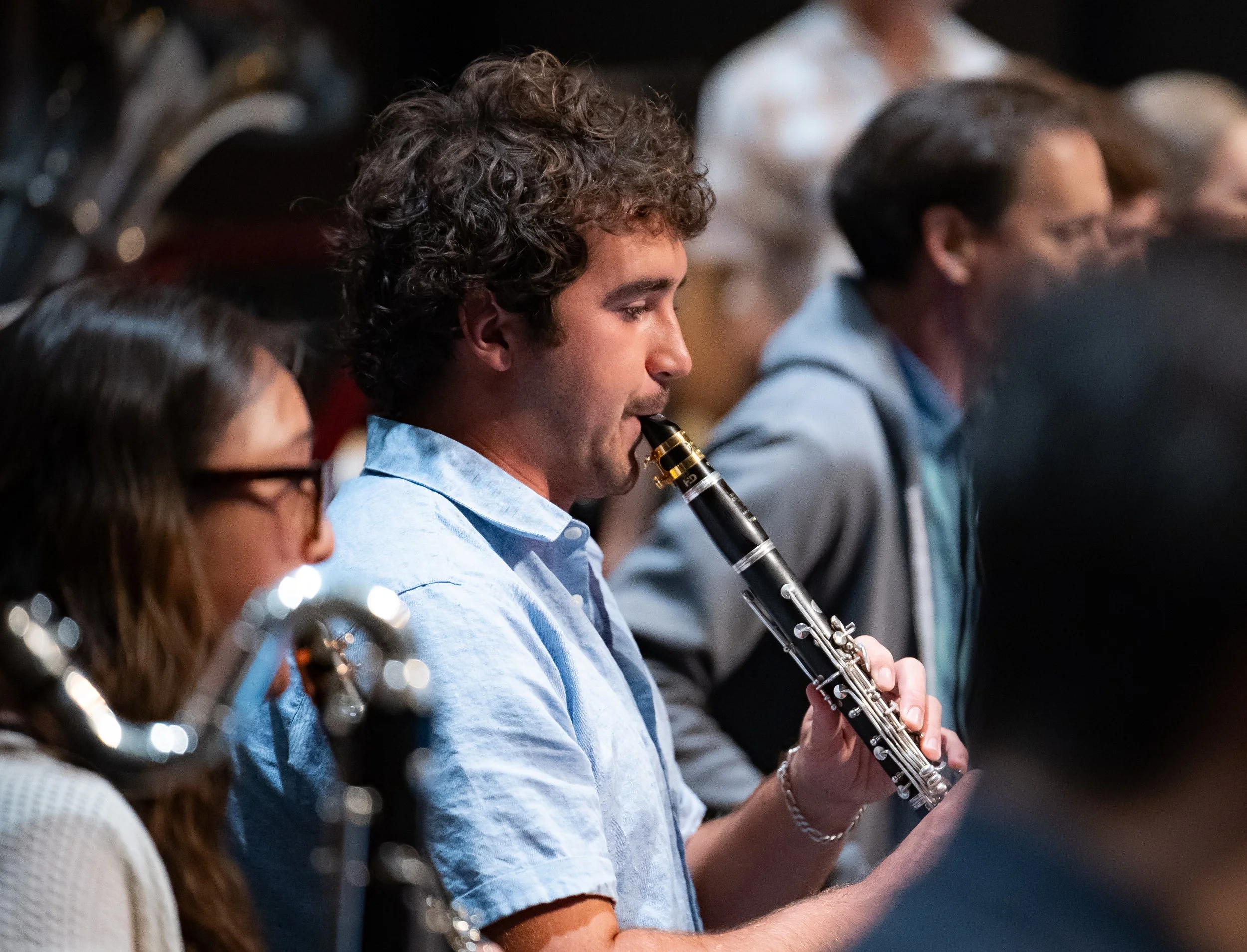
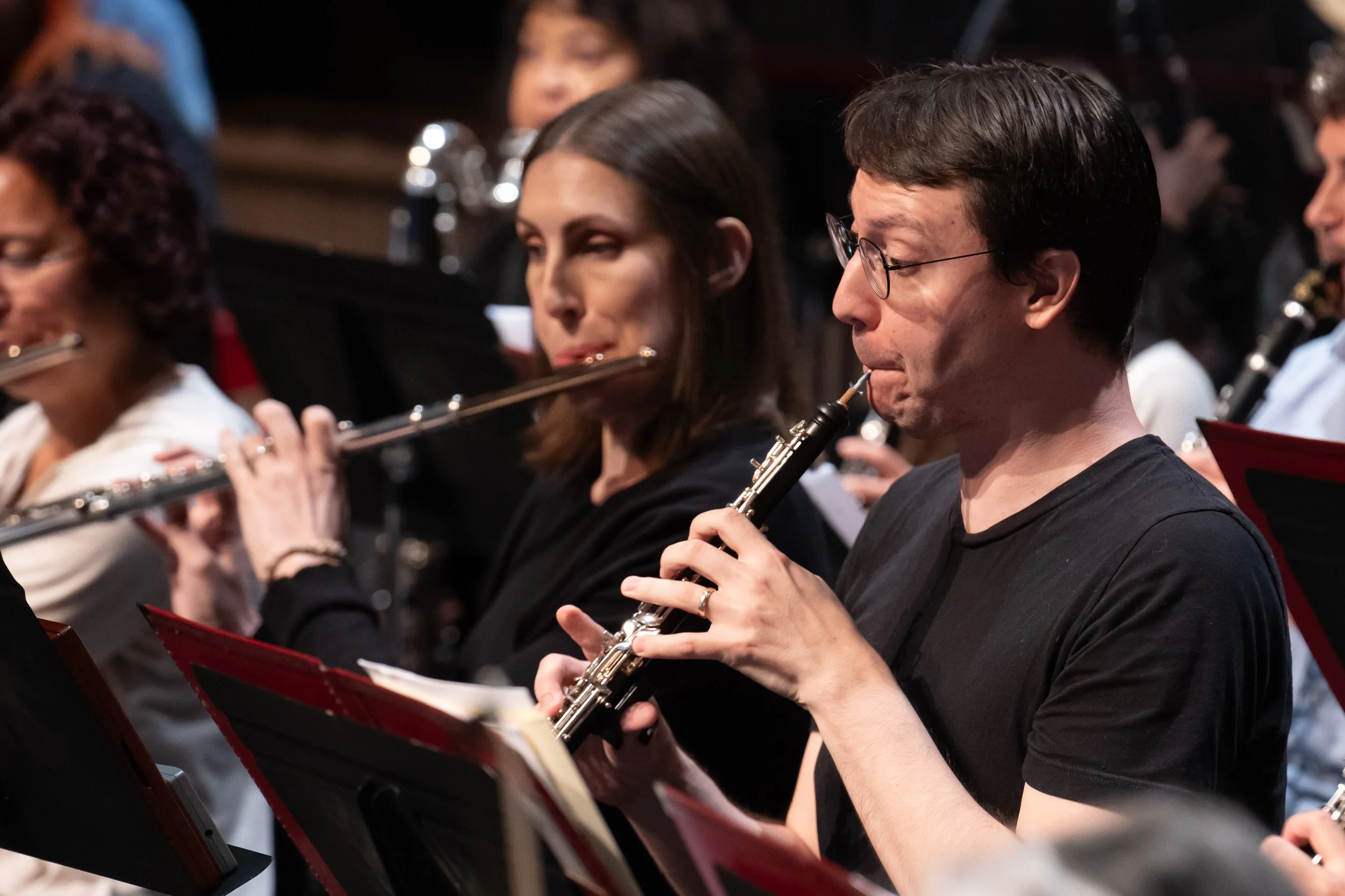
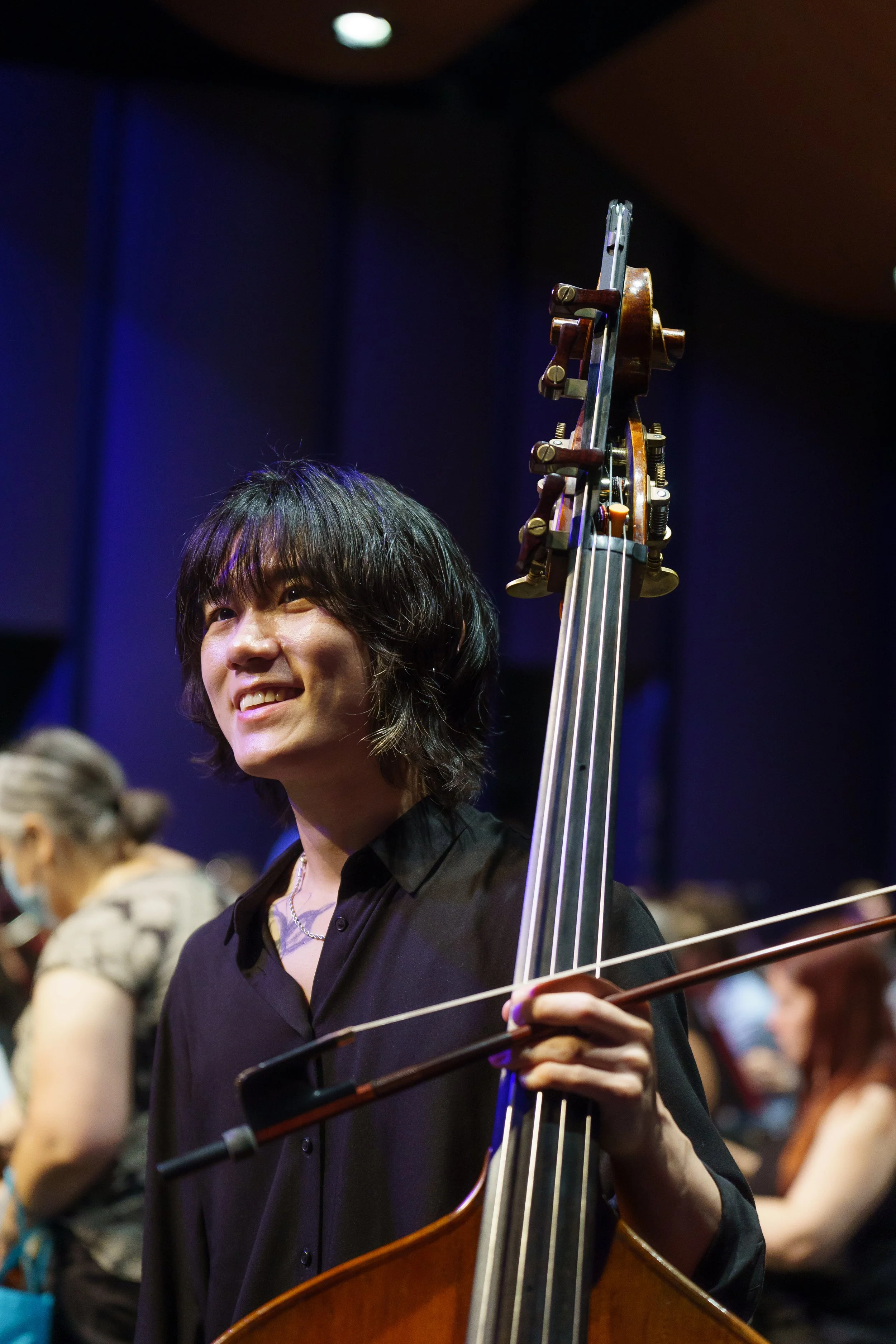
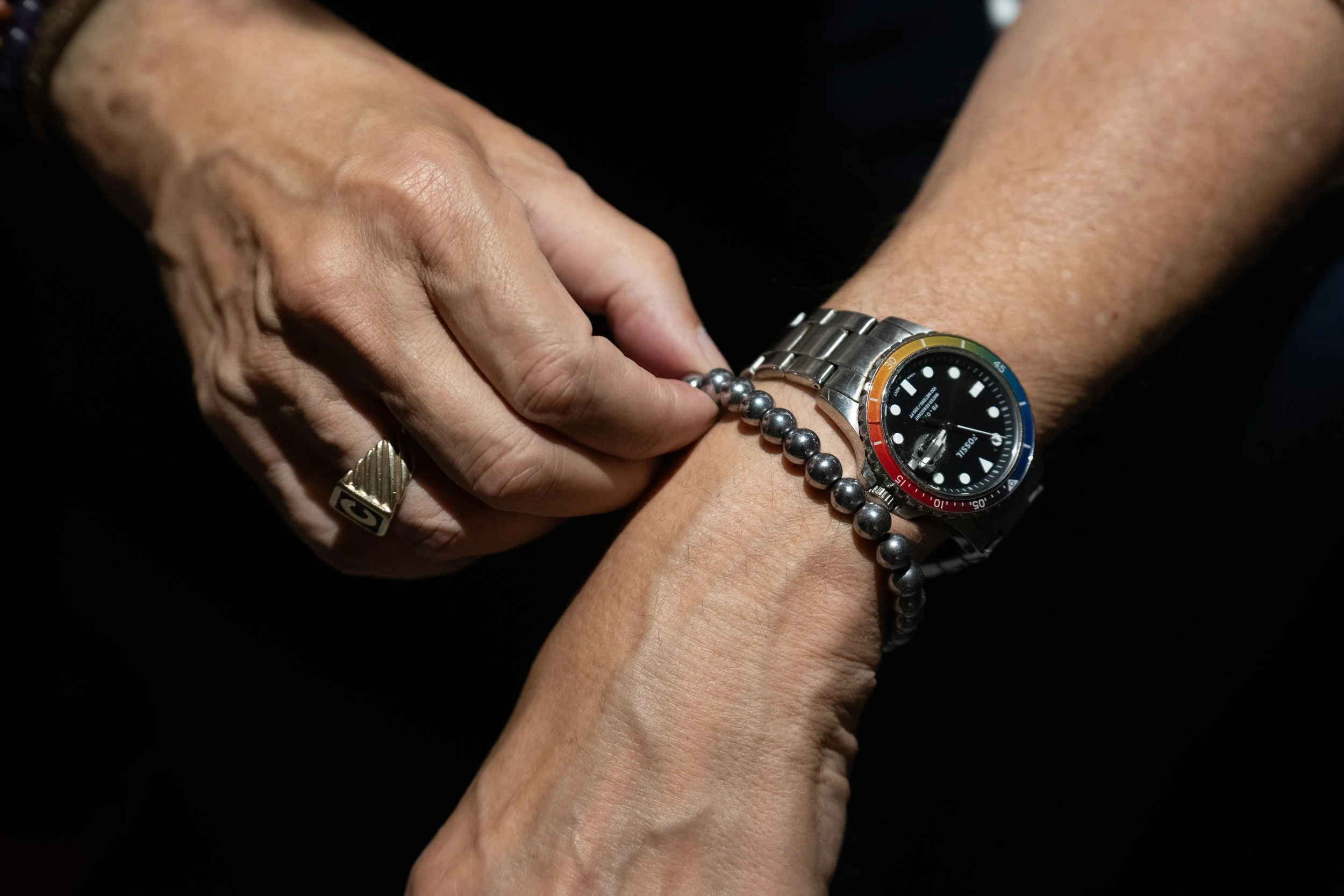
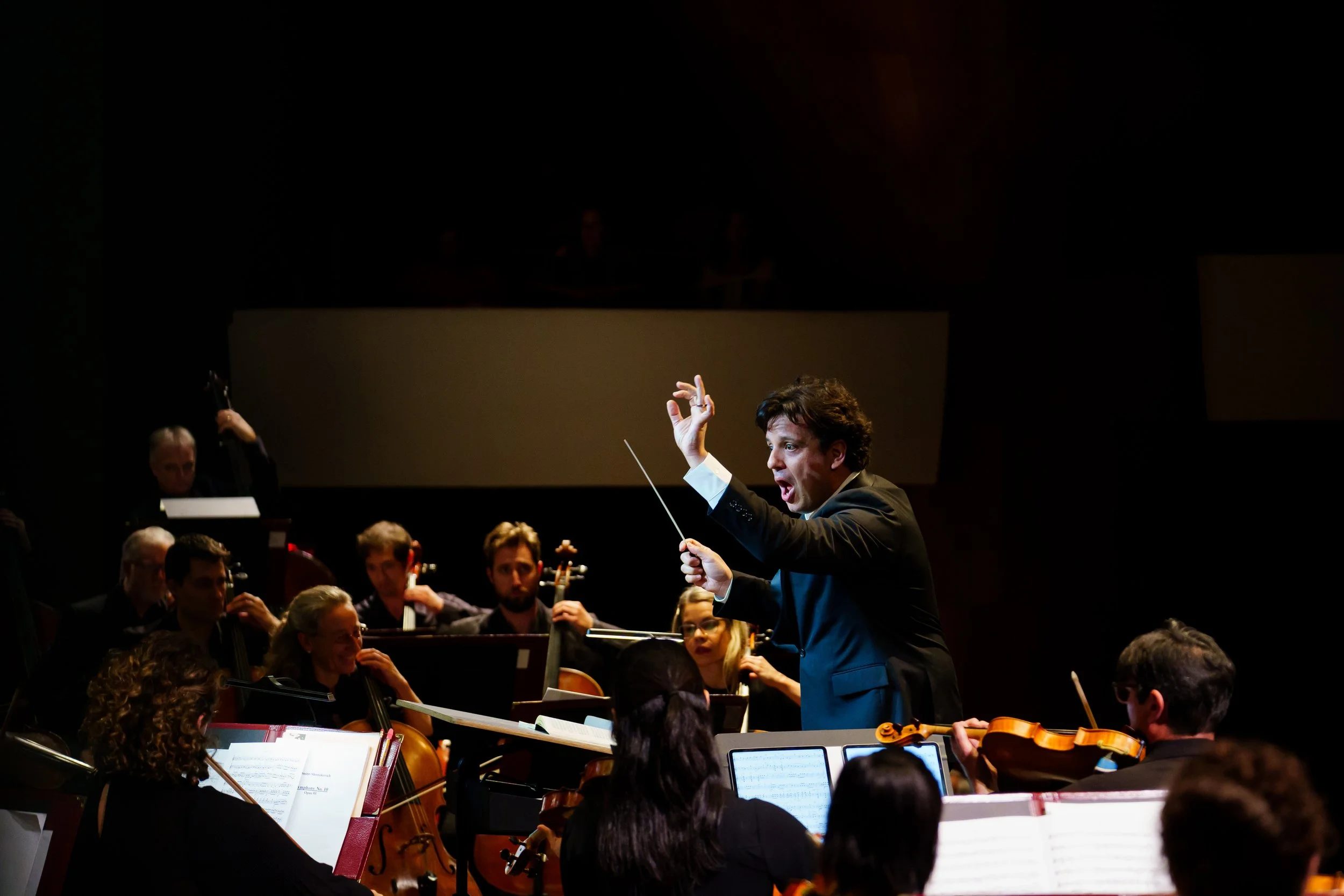
On Sunday, Sept. 7, 2025, Orchestra Santa Monica (OSM) presented the program “Classical Jukebox” at BroadStage, conducted by Music Director Roger Kalia and narrated by featured guest host Alan Chapman. Chapman is known globally as a classical music lecturer and composer/lyricist, college educator, and radio host of KUSC’s Classical California.
The performance began at 3 p.m., with a pre-concert talk on stage at 2:15 p.m., where Kalia and Chapman shared a discourse on music programming, told stories about musicians auditioning for orchestra jobs, and answered questions from the audience.
Orchestra Santa Monica was founded in 2012 by Dr. Allen Robert Gross, with Kalia taking over after Gross’ retirement in 2018. Kalia is now in his eighth season with OSM. He also serves as Music Director of the Evansville Symphony, the Terre Haute Symphony and the Lake George Music Festival, of which he is the Co-Founder.
OSM’s musicians are mostly Local 47 AFM professionals, with some tenured principals, along with a handful of longstanding volunteers. Among the volunteers in the violin section are OSM’s Executive Director Cindy Bandel and board member Raymond Knapp, Distinguished Professor of Musicology, Disability Studies, and Humanities as well as Director of Graduate Studies in Musicology at UCLA.
BroadStage is OSM’s home venue, where they perform three concerts each year in addition to occasional performances at other venues. Since 2022, all of OSM’s concerts have been completely free to audiences.
“We have a very dedicated audience,” said Kalia. “Some of them have been coming since this orchestra started.” Sunday’s concert sold out three weeks before the show. A large portion of the audience was seated early for the pre-concert talk at 2:15, with others steadily arriving to fill the rest of the hall for the concert. Most of their ongoing audience is still in the older population, although relatively recent additions to classical concert programming such as movies shown with live music and video game themes have drawn in younger listeners. This concert featured colored LED lighting from BroadStage, and a surprise piece chosen online by audience selection and revealed at the performance.
“Classical Jukebox” was one of many themes Kalia has created as an orchestral music director. It opened with a familiar Beethoven line from Symphony No. 5 and ended with John Williams’ popular film music from “Star Wars.” “It's supposed to be little snippets of great famous classical music pieces,” said Kalia. “So rather than do a full symphony, I said, it'd be fun to have a lot of variety and try something where you do a movement here and movement there.”
The rest of the concert featured works by Tchaikovsky, Shostakovich, Brahms, Mahler, and contemporary Mexican composer Gabriela Ortiz. The Williams, Shostakovich and Ortiz pieces are particularly percussion heavy. Ortiz’s piece, “Kauyumari,” was originally written for the Los Angeles Philharmonic in 2021.
“It’s a lot of music for the musicians,” Kalia said. “But the good thing is, they’ve played a lot of these pieces. It doesn’t get easier, but they’ve played Beethoven 5 throughout their career as musicians. You grow up and you play in a youth orchestra, and it’s one of the first pieces you play.”
Kalia was a trumpet player in his youth orchestra before he became a conductor. He began the trumpet in fourth grade, playing through college. At that point, he said he had experienced terrible anxiety and stage fright around solos during his undergraduate years. “I would shake and my lip would quiver,” he said. “And I knew I couldn’t be a professional trumpet player if that was the case. So with conducting, though, even though you’re in front of so many people, it just came much more naturally.”
After OSM's dress rehearsal, Kalia shared his thoughts on balancing emotion and control while keeping music fresh as a conductor.
“The music has to excite you, and you have to show that passion to the musicians who, some of them, like I said, have played it a million times. How do you make it special - that it’s like playing it for like the first time,” Kalia said.
“So that’s what I think about a lot,” said Kalia. “…The notes are the same, but every conductor sounds - makes the orchestra sound different based on what they look like, of course, the gestures. So this all goes into it.”
He continued, “You know, I think I’m pretty emotional, energetic, but also you have to keep your cool, because if you do too much, they’ll get crazy and the music will get wild.
“And you don’t want it to be wild, right? Like [Leonard] Bernstein was a little wild at that time, so I loved him. Love his energy, but sometimes - I can never do that.”
Kalia said he feels whether the audience is with him. On his hopes for the upcoming performance, he said, “I want them to walk away humming these tunes and saying, you know, wow. This was a joyful afternoon, an uplifting afternoon. I got to not only hear great music, but I got to hear from the conductor and hear from Alan Chapman, who’s an incredible human being - also fun, so knowledgeable about music.”
Alan Chapman sometimes refers to himself as a “recovering academic.” His career includes presenter, radio host, college music professor, composer, lyricist and pianist. “Do what you like” and “have a sense of humor,” are two things he recommends. He said he loves movies, word games, and New York Times puzzles.
“I was always into words,” said Chapman. “Writing and word games. Started writing songs probably when I was twelve or thirteen.”
Chapman holds a PhD in music theory from Yale University, though he began college in a different field. “I thought I wanted to be a scientist,” he said. He attended Massachusetts Institute of Technology (MIT) for his undergrad, intending to major in physics. “I changed my mind after a week of freshman physics. A week…So that was good because it tipped me off to the reality of science.” He had assumed it was what he was supposed to do, because he was good at it and interested in the subject, but just didn’t find it “the same sort of fun” as high school physics.
Chapman made music theory his academic field at MIT. He said, “People are constantly amazed. I tell them - ‘what’d you major in?’ - ‘I majored in music.’ ‘You did what?’ Yeah, I did.”
MIT ended up being perfect for him to study music, he said. “It was a broad education. Wasn’t a narrow musical education…And at MIT, you’re in a class with people who sort of get it, you know, they understand what, you know, sort of formal systems are all about,” said Chapman.
MIT recently launched a Music Technology graduate program in 2024, but there are still no other graduate music degrees, and therefore no graduate assistants. “There were no TA’s. All the real instruction came from real faculty members… My instruction came from the best possible people. And so when I went to grad school [at Yale]… I knew what I was doing,” said Chapman.
Of his multifaceted career in the field, Chapman said, “Basically there are four threads. There’s radio, there’s teaching, there’s lecturing, and there’s performing, and they all somehow fit together.” Chapman doesn’t pick any one of them over another. “I feel connected to all of them…Because all of them are communication,” he said. “If I were to discontinue any one of them, I would feel, I would feel the loss of it. I would feel like that part was missing, because, you know, different parts of the brain get tapped.
“They’re all connected, but they’re different skills,” said Chapman. “There are skills in common, and special skills. Being on the radio is different from addressing an audience live, which is different from, you know, talking about a concert program is different from performing music. It works out.” He continued, “People have asked me, do you want to give up this thing? And I think, no - no, because I would miss any one of them.”
Kalia and Chapman were asked if they had any life advice for students. “Whatever you do, don’t let it define you,” said Chapman. “….Don’t let it define you and realize there’s more to you than any one thing that you’re doing. So if you have a job, don’t let the job define you. You define yourself.”
“Always be sincere, yourself,” Kalia had said. “Things will go wrong and just keep your cool. Always keep your cool but make sure you’re never not the person you know you are…Always be grateful, sincere to people…Always make sure you show your true colors and don’t put on any sort of, like, façade, because people will read through that. As a conductor, it’s - they can tell if I’m fakin’ it. They can tell. You got to just be your absolute self and don’t mess around.”
